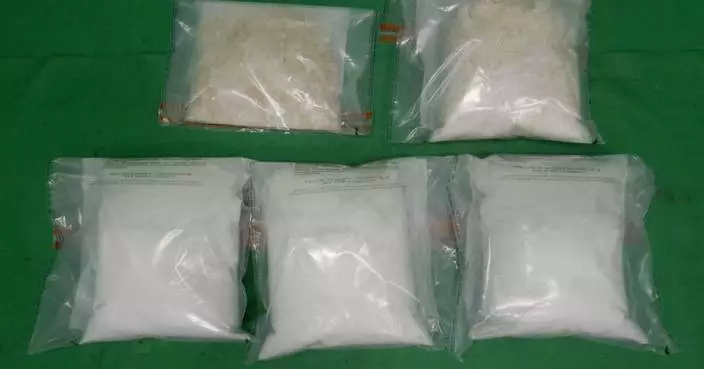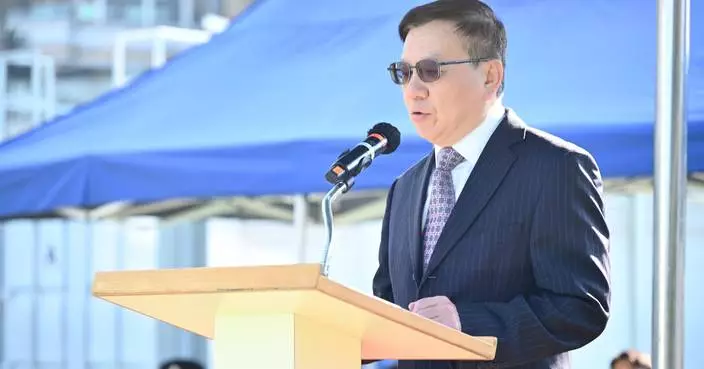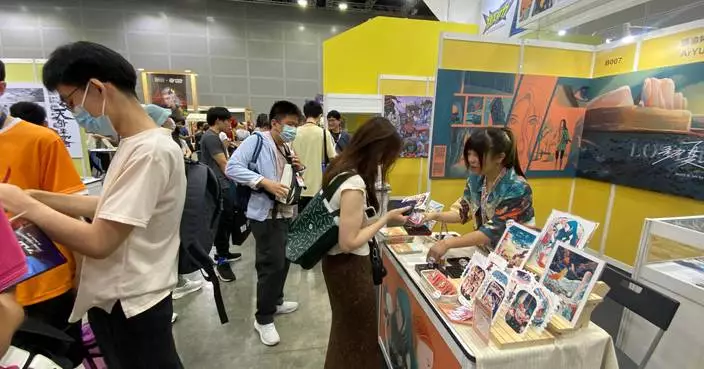CE's speech in delivering "The Chief Executive's 2024 Policy Address" to LegCo (4)
(C) International Trade Centre
58. The global trade landscape is undergoing constant changes, with parts of the supply chains shifting to the Global South and B&R countries, while many Mainland enterprises are also actively establishing their presence abroad.
59. Hong Kong topped the global rankings in international trade and business legislation, according to the World Competitiveness Yearbook 2024. We have been the prime destination for Mainland and overseas enterprises setting up international headquarters to manage offshore trading and supply chain businesses.
Build a High Value-added Supply Chain Service Centre
60. Hong Kong is home to a deep pool of talents and extensive networks in offshore trading and supply chain management, including production chain management, export credit risk management, trade financing, marketing, testing and certification, accounting and other professional services. We will strengthen the provision of high value‑added supply chain services by:
(i) establishing a high value‑added supply chain services mechanism – The Invest Hong Kong (InvestHK) and the Hong Kong Trade Development Council (HKTDC) will set up a mechanism and enhance the interface for attracting Mainland enterprises to establish international or regional headquarters in Hong Kong, providing one‑stop, diversified professional advisory services for enterprises in Hong Kong looking to go global;
(ii) providing greater export protection for enterprises – The statutory maximum indemnity percentage of the Hong Kong Export Credit Insurance Corporation (ECIC) will be increased from 90% to 95%. The ECIC will also provide more free buyer credit checks with extended geographical coverage, and enhance financing support for e‑commerce businesses;
(iii) providing robust export credit services – We will encourage the China Export & Credit Insurance Corporation to explore setting up businesses in Hong Kong, providing export credit insurance services covering overseas investment with prolonged investment period, offering Mainland enterprises in Hong Kong venturing overseas markets and foreign‑funded companies doing businesses in Mainland market with more comprehensive export credit services;
(iv) promoting electronic trade financing – The HKMA is experimenting with tokenised electronic bills of lading through its Project Ensemble Sandbox. The goal is to lower fraud risks through the better use of technology and to facilitate the provision of trade financing by financial institutions. The HKMA will work with other jurisdictions on a pilot basis to develop mechanisms for trade information transmission, promoting cross‑boundary data transfers and the digitalisation of international trade. It will also allow potential stablecoin issuers to test blockchain use cases, including solutions for cross‑boundary payments through the stablecoin issuer sandbox; and
(v) enhancing financial services with data – The HKMA expects to connect its Commercial Data Interchange (CDI) with the system of the Land Registry next year to facilitate enhancement of banking services through the better use of data.
Expand Our Global Economic and Trade Networks
61. In addition to developing the European and American markets, we will continue to expand our economic and trade networks, especially with B&R countries. Relevant measures include:
(i) further opening up of trade in services with the Mainland – Under the Second Agreement Concerning Amendment to the Mainland and Hong Kong Closer Economic Partnership Arrangement (CEPA) Agreement on Trade in Services (Amendment AgreementII) signed recently, further liberalisation measures have been introduced across several services sectors. These include the construction, testing and certification, financial services, film, and television sectors. In particular, the period requirement of substantive business operations in Hong Kong for three years has been removed in most services sectors. This will attract more Hong Kong start‑ups, overseas enterprises, and talents from around the world to establish their presence in Hong Kong to tap the Mainland market. We will implement the Amendment Agreement II, step up promotion and provide assistance to enterprises as needed;
(ii) reinforcing the interface of trade mechanisms – We will continue to seek early accession to the Regional Comprehensive Economic Partnership (RCEP). We are also in investment agreement negotiations with Bangladesh and Saudi Arabia, and plan to begin negotiations with Egypt and Peru. Our free trade agreement (FTA) negotiations with Peru have been concluded and we expect to sign the FTA this year. We will also expand the global network of our Economic and Trade Offices, focusing on establishing economic and trade ties with emerging markets; and
(iii) further exploring priority markets – We will continue to pay visits and lead business and professional services delegations to priority markets such as B&R countries. We will also organise the B&R Cross‑professional Forum to promote Hong Kong's professional services.
Promote Development of a Headquarters Economy
62. The Government will step up efforts to bring in strategic enterprises from outside the city to set up headquarters or corporate divisions in Hong Kong. The FSTB will submit a bill this year to introduce a company re‑domiciliation mechanism obviating the need for companies intending to re‑domicile in Hong Kong to be wound up in its original domicile overseas and establish a new company in Hong Kong. The companies will be able to preserve their legal identity and business continuity, saving cost as a result of the simplified procedures.
63. The validity period of multiple‑entry visas for foreign staff of companies registered in Hong Kong, including non‑permanent residents, will be extended to a maximum of five years to facilitate their visit to the Mainland, and their applications will enjoy priority processing.
64. We will strengthen the range of financial services available for Mainland enterprises in Hong Kong wishing to expand overseas, encouraging Mainland financial enterprises to co‑ordinate and manage their overseas business in Hong Kong and facilitating their internationalisation. The HKMA is exploring ways to enable Mainland enterprises looking to go global to enjoy facilitation of cross‑boundary RMB settlement and financing through enhanced offshore RMB liquidity, utilising technology and promoting international collaboration.
Foster Trading of Liquor
65. At present, Hong Kong imposes a duty of 100% on the import price of liquor (with alcoholic strength of more than 30%). To promote liquor trade and boost the development of high value‑added industries including logistics and storage, tourism as well as high‑end food and beverage consumption, the Government has made reference to the successful experience of driving the wine trade through exemption of wine duty, and will, starting today, reduce the duty rate for liquor with an import price of over $200 from 100% to 10% for the portion above $200, while the duty rate for the portion of $200 and below, as well as liquor with an import price of $200 or below will remain unchanged.
(D) International Aviation Hub
66. As an international aviation hub, Hong Kong is connected to nearly 200destinations worldwide. Our city has topped the global ranking for air cargo throughput for more than a decade.
67. The Airport Authority Hong Kong (AAHK) will complete the Three‑Runway System by the end of this year. From 2035, the Hong Kong International Airport (HKIA)'s capacity will increase by 50%.
Enhance Aviation Development Strategies
68. The Government will step up efforts in expanding our aviation network by supporting the HKIA to explore new destinations and flights, particularly enhancing co‑operation with civil aviation counterparts from B&R countries. In parallel, we will combine the strengths of our airport and Zhuhai Airport to improve the Fly‑Via‑Zhuhai‑Hong Kong direct passenger service and jointly develop international air cargo business for greater synergy.
Develop a World-leading Airport City
69. The Government will plan with the AAHK for expanding the scale of the Airport City by more than double, building a new, world‑leading landmark in the bay area among the Airport Island, the Hong Kong Port Island of the HZMB and Tung Chung East New Town. New projects will be developed to promote high‑end commercial, tourist and leisure activities. These include creating an ecosystem for the arts industry, building the AsiaWorld‑Expo Phase 2, developing a yacht bay with ancillary facilities, opening a food market for imported fresh food and providing more public spaces.
Expand Cargo Capacity through the GBA and Enhance Advantages of the Air Cargo Industry
70. The AAHK is pressing ahead in full steam with the innovative development of a sea‑air intermodal cargo‑transhipment mode in collaboration with Dongguan. The initial stage of first‑phase construction for the permanent logistics park in Dongguan, the HKIA Dongguan Logistics Park, will be completed by the end of next year, and the cargo‑handling capacity will progressively reach one million tonnes per annum. Advance planning will be made to commence the second‑phase development, introducing more high value‑added logistics, cross‑boundary e‑commerce and courier service facilities.
71. The Government will extend arrangements under the Air Transhipment Cargo Exemption Scheme to other intermodal cargo‑transhipment modes to boost competitiveness.
(E)Regional Centre for International Legal and Dispute Resolution Services
Commence Training for International Legal Talents
72. The Hong Kong International Legal Talents Training Academy will be officially launched this year, cultivating legal talents to be familiar with international law, common law, civil law, national legal systems and other legal aspects. The dedicated office and expert committee under the Department of Justice (DoJ) are pressing ahead with the related work.
Step up Promotion of Mediation Services
73. The International Organization for Mediation will have its headquarters set up in Hong Kong upon adoption and entry into force of the relevant international convention. The Government will enhance the system on local accreditation and disciplinary matters of the mediation profession to further strengthen our role as an international mediation centre. We will incorporate mediation clauses in government contracts and encourage private organisations to make reference to and adopt such clauses. We will also launch the Pilot Scheme on Community Mediation to offer more training opportunities for promoting mediation culture.
Develop a Sports Dispute Resolution System
74. With the development of sports activities and industry, sports disputes have become increasingly complicated. We will explore establishing a sports dispute resolution system and promote sports arbitration, leveraging the institutional advantages of Hong Kong in dispute resolution.
(To be continued.)








